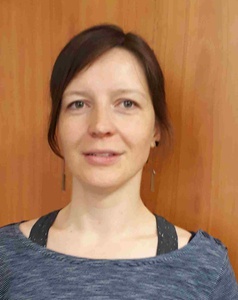Principal Investigator
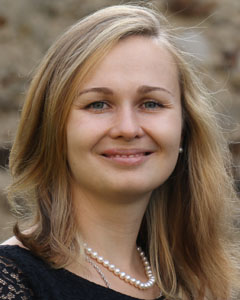
Assoc. Prof. Mariya Shamzhy, Ph.D.
mariya.shamzhy@natur.cuni.cz
tel.: 221 951 291
Lab 032 (1st underground floor)– Hlavova 8
-Tailoring zeolite-based and supported metal catalysts
–In-situ and operando FTIR spectroscopy
1. A course for PhD students MC260P133 “Physical Chemistry for International Students II”
2. A course for PhD students MC260P90 “Zeolites and Molecular Sieves”
3. A course for undergraduate students MC260P138 “Catalysis in Practice”
4. A course for undergraduate students MC260P147 “Experimental Methods in Chemistry”
M. Shamzhy received her M.Sc. degree in Chemistry with honours from Lomonosov Moscow State University in 2006 for her thesis “Mordenite with Combined Micro-Mesoporous Structure: Synthesis, Physicochemical and Catalytic Properties.” She then joined the L.V. Pisarzhevsky Institute of Physical Chemistry (National Academy of Sciences of Ukraine), where she completed her Ph.D. in 2013, focusing on the design of active sites in extra-large pore zeolites.
Following her doctoral studies, she spent one year as a postdoctoral fellow at the J. Heyrovský Institute of Physical Chemistry (Czech Academy of Sciences) under the supervision of Prof. J. Čejka studying structure-activity relationships of MOFs and layered zeolite catalysts in liquid-phase reactions. In 2014-2016, she continued her research at the same institute, leading the project granted by the Czech Science Foundation.
Between 2017 and 2022, M. Shamzhy served as an Assistant Professor at the Charles University Centre of Advanced Materials, and since 2023, she has held the position of Associate Professor at the Faculty of Science, Charles University.
For her research on porous materials and contribution to the design of zeolite catalysts, Mariya has been honored with the Young Scientist Award by the Learned Society of the Czech Republic (2021) and distinguished with the Neuron Prize for Promising Scientist in Chemistry (2022).
Principal Investigator
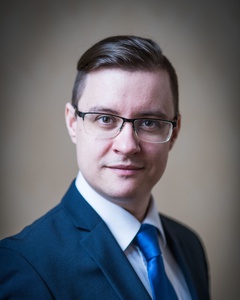
Assoc. Prof. Maksym Opanasenko, Ph.D.
maksym.opanasenko@natur.cuni.cz
tel.: 221 951 322
Lab 150 (1st floor)– Hlavova 8
-Design of inorganic, polymeric and hybrid organic-inorganic porous materials
-Heterogeneous Catalysis
1. A course for PhD students MC260P90 “Zeolites and Molecular Sieves”
2. A course for undergraduate students MC260P138 “Catalysis in Practice”
3. A course for undergraduate students MC260P21 “Chemical Principles of Industrial Chemistry”
M. Opanasenko received his M.Sc degree in Chemistry from Lomonosov Moscow State University in 2006 for his thesis “The targeted synthesis of potential melatonin receptor ligands”. He continued his doctoral studies at the L.V. Pisarzhevsky Institute of Physical Chemistry (National Academy of Sciences of Ukraine) and obtained his Ph.D. in 2011, specializing in porous polymeric and composite materials.
In 2011, M. Opansenko joined the research group of Prof. J. Čejka at the J. Heyrovský Institute of Physical Chemistry (Czech Academy of Sciences). He held visiting associate positions in the group of Prof. R. Morris at the University of St Andrews (UK) in 2014, and in the group of Prof. J. Breu at the University of Bayreuth (Germany) in 2019.
From 2016 to 2020, he was part of the Charles University Centre of Advanced Materials, where he held the position of Assistant Professor. Since 2020, he has served as an Associate Professor at the Faculty of Science, Charles University and the President of the Czech Zeolite Association.
Researchers
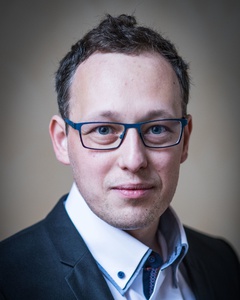
Jan Přech, Ph.D.
jan.prech@natur.cuni.cz
tel.: 221 951 322
Lab 150 (1st floor)– Hlavova 8
Catalytic applications of Lewis acidic zeolites, 2-dimensional zeolites and metal@molecular sieve composites
1. A course for PhD students MC260P133 “Physical Chemistry for International Students II”
2. A course for undergraduate students MC260P113 “Physical Chemistry II (a)”
3. A course for undergraduate students MC260P139 “Chemical Principles”
4. A course for undergraduate and PhD students MC260P137 “Fundamental of Catalysis”
5. A course for undergraduate students MC260C66 “Chemistry Laboratory”
J. Přech received his M.Sc. degree in Engineering from the University of Chemistry and Technology in Prague in 2012. He then pursued his doctoral studies at the J. Heyrovský Institute of Physical Chemistry (Czech Academy of Sciences) under the supervision of Prof. J. Čejka, completing his Ph.D. in Physical Chemistry. For his doctoral work, Jan was awarded the Jean-Marie Lehn Prize in Chemistry in 2016 for the best Ph.D. thesis.
Following his Ph.D., Jan spent 18 months as a postdoctoral research associate in the group of Prof. V. Valtchev at the Laboratory of Catalysis and Spectrochemistry, University of Normandy (France). In 2018, he joined the Charles University Centre of Advanced Materials (CUCAM) in Prague. Since 2020, he has held the position of Assistant Professor at the Faculty of Science, Charles University.
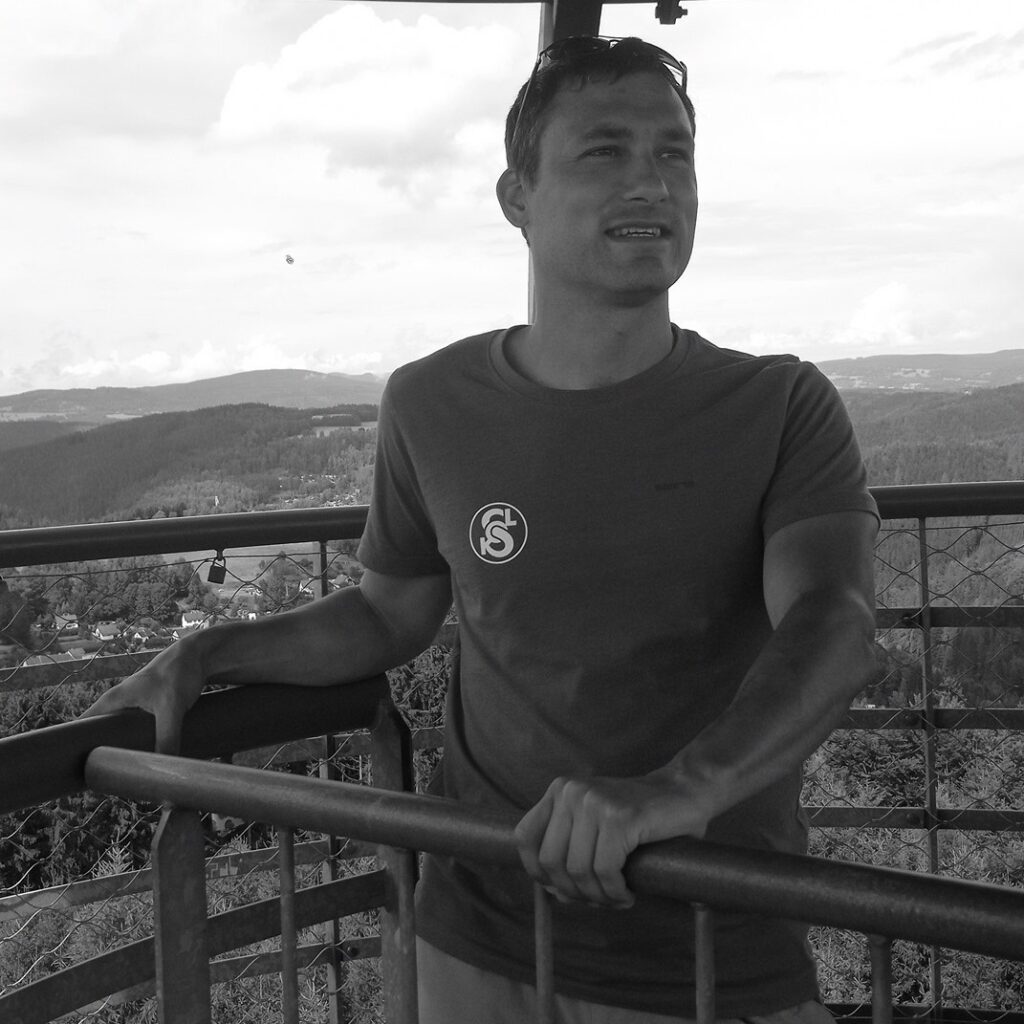
Martin Kubů, Ph.D.
martin.kubu@natur.cuni.cz
tel.: 221 951 064
Lab 227 (2nd floor)– Hlavova 8
-Synthesis and modification of nanoporous catalysts and adsorbents
-Physisorption and chemisorption techniques to assess adsorption kinetics and thermodynamics
M. Kubů received his M.Sc. degree in Chemistry and Chemical Technologies from the University of Chemistry and Technology in Prague in 2007. He then joined the Department of Synthesis and Catalysis at the J. Heyrovský Institute of Physical Chemistry (Czech Academy of Sciences), where he completed his Ph.D. in 2012 under the supervision of Prof. J. Čejka.
From 2013 to 2018, he continued his research at the J. Heyrovský Institute, supported by the Grant Agency of the Czech Republic.
Since 2019, he has been working as a Research Assistant at the Faculty of Science, Charles University.
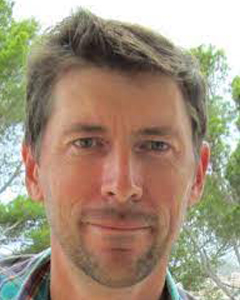
Oleg Petrov, Ph.D.
olegvpetrov@yandex.ru
tel.: 951 552 561
Lab 138 (1st floor)– V Holešovičkách 747/2
Solid state NMR spectroscopy
O. Petrov received his Ph.D. in Physics from Kazan State Technological University and has over 20 years of experience in solid-state NMR spectroscopy. He has developed his expertise through research carried out at internationally recognized institutions, including the Royal Institute of Technology (Stockholm, Sweden, 2003-2007), the University of New Brunswick (New Brunswick, Canada, 2007-2011), the Technical University of Darmstadt (Darmstadt, Germany, 2011-2015), the Technical University of Ilmenau (Ilmenau, Germany, 2016-2018).
Since 2018, he has been affiliated with the Faculty of Mathematics and Physics, Charles University.
Post-docs
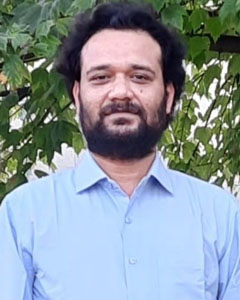
Subhajyoti Samanta, Ph.D.
samantas@natur.cuni.cz
tel.: 221 951 064
Lab 226 (2nd floor)– Hlavova 8
-Heterogeneous thermo-, electro-, photocatalysis
–In-situ and operando FTIR Spectroscopy
S. Samanta received his M.Sc. degree in Chemical Science from Guru Ghasidas Central University (India) in 2011. He obtained his Ph.D. degree in Chemistry in 2020 from the Catalysis Research Group, Department of Chemistry at the Indian Institute of Technology Ropar, under the supervision of Prof. R. Srivastava. His doctoral thesis, titled “Metal Oxide-Based Nanocomposite Materials for Energy and Fuel Production,” was recognized as the best thesis of the year and awarded the Institute Silver Medal in Science.
His research achievements were further acknowledged by the National Research Foundation of Singapore, which honored him with the Young Scientist Award at the Global Young Scientist Summit (GYSS) in 2020.
Between March 2021 and June 2022, he served as a Postdoctoral Research Associate in the Department of Chemical and Biomolecular Engineering at Lehigh University (Pennsylvania, USA), working on spectro-kinetic investigations of heterogeneous catalysts.
In 2023, he also gained industrial experience as an Application Specialist in Analytical Chemistry within the International Market Support Group at Mettler Toledo (India).
In 2024, Dr. Samanta joined the Engineering Solid Catalysts research group at Charles University, bringing his expertise in FTIR spectroscopy to the team.
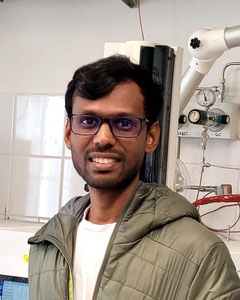
Mariyamuthu M., Ph.D.
mm@natur.cuni.cz
tel.: 221 951 064
Lab 226 (2nd floor)– Hlavova 8
Design and catalytic application of inorganic, polymeric and hybrid organic-inorganic functional materials
Mariyamuthu M. received his M.Sc. and M.Phil. degrees in Chemistry from Bharathidasan University (India) in 2015. He earned his Ph.D. in Chemistry in 2024 from the Inorganic Materials Catalysis Research Division at the CSIR–Central Salt and Marine Chemicals Research Institute, under the supervision of Dr. K. Srinivasan and Dr. L. J. Konwar. His doctoral research focused on the transformation of carbon dioxide into industrially relevant fine chemicals using heterogeneous catalysts.
His research expertise comprises
Shortly after earning his Ph.D., Dr. Mariyamuthu M. joined the Engineering Solid Catalysts research group at Charles University, contributing his specialized expertise in the design and development of functional materials for sustainable energy applications. His research focuses on catalytic processes for waste-to-energy conversion, particularly those utilizing CO₂ and biomass-derived feedstocks. He is also experienced in high-pressure, high-temperature catalysis involving C1-based molecules, working with both continuous-flow and batch reactor systems.
Students
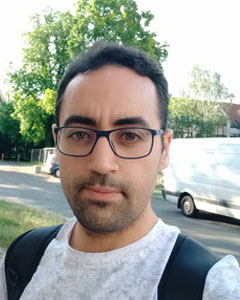
Ph.D. student Emad Shamma
shammae@natur.cuni.cz
tel.: 221 951 064
Lab 226 (2nd floor)– Hlavova 8
-Engineering active sites in zeolites and supported metal catalysts
-Heterogeneous catalysis for oil refining, fine chemicals production, environmental protection
E. Shamma received his M.Sc. degree in Chemistry from Menoufia University (Egypt) in 2020, with a thesis focused on the synthesis of mesoporous Co₃O₄-based catalysts for the oxidation of volatile organic compounds. Since 2017, he has been serving as a Research Assistant at Egyptian Petroleum Research Institute, contributing to both academic and industry-linked projects in the field of oil refining and environmental catalysis.
Since beginning his Ph.D. studies in 2022, Emad has gained hands-on experience in the synthesis, post-synthetic modification, and characterization of zeolites. His work on the functionalization of germanosilicate zeolites has contributed to a publication in J. Mater. Chem. A and has been presented at several international events, including the Summer School on Characterization Techniques (Germany), the Workshop on Catalysis (Czech Republic), and the International Zeolitic Materials School (Spain).
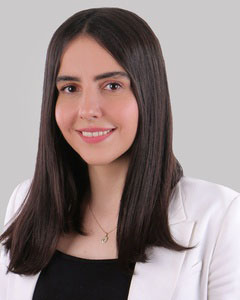
Ph.D. student Talat Zakeri
talat.zakeri@natur.cuni.cz
tel.: 221 951 152
Lab 150 (1st floor)– Hlavova 8
-Design of zeolite-based and supported metal catalysts
T. Zakeri received her M.Sc. degree in Thermodynamics and Kinetics from the Iran University of Science and Technology in 2015, with a thesis on Ni-Co/Al₂O₃ catalysts for dry reforming of methane. She later gained industrial experience in catalyst and material development at Maghsoud Porcelain Factories Group and Ayegh Khodro Toos Company, contributing to EURO 5-compliant catalytic converter design in collaboration with the University of Tehran.
In 2023, Talat began her Ph.D. studies at Charles University, focusing on zeolite-based catalysts, and contributed to a publication in Catalysis Today. In 2024, she was awarded a 3-year research grant from the Grant Agency of Charles University for a project on Lewis acid zeolites for biomass valorization. In 2025, she completed a 3-month research stay in the group of Prof. Murzin at Åbo Akademi University (Finland) and , where she carried out catalytic testing of designed materials.
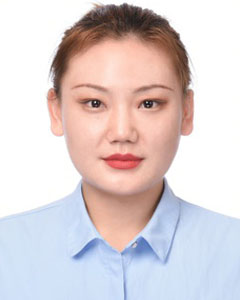
Ph.D. student Yuqi Zhang
yuqi.zhang@natur.cuni.cz
tel.: 221 951 152
Lab 150 (1st floor)– Hlavova 8
–In situ FTIR and NMR spectroscopy for identification and quantification of active sites in solid catalysts
-Heterogeneous catalysts for renewable chemicals
Y. Zhang received her M.Sc. degree in Innovative and Sustainable Chemical Engineering from Chalmers University of Technology (Sweden) in 2022, where she worked on doped cerium oxide catalysts for CO₂ methanation in the group of Prof. Per-Anders Carlsson. She holds a Bachelor’s degree in Chemical Engineering and Technology from Heilongjiang University (China), with a thesis on microporous and hierarchical SAPO-11 molecular sieves.
Since beginning her Ph.D. studies in 2023, Yuqi has gained experience in the synthesis of Lewis acid zeolites and the use of in situ FTIR spectroscopy to study catalyst–reagent interactions. Her research has also focused on evaluating the catalytic performance of these materials in the transformation of sucrose to 5-hydroxymethylfurfural, contributing to a publication in Microporous and Mesoporous Materials. In 2025, Yuqi was awarded a 3-year research grant from the Grant Agency of Charles University for a project on the development of quantification method for active sites in Sn- and Zr-zeolites.

Ph.D. student Guilherme Brígido Rosa
guilherme.rosa@ua.pt
tel.: 221 951 064
Lab 227 (2nd floor)– Hlavova 8
-Developing integrated IR/NMR spectroscopic and computational approaches to characterizing functionalities of zeolite catalysts
Guilherme received his B.Sc. and M.Sc. degrees in Chemistry from the University of Aveiro (Portugal). His bachelor’s thesis (2018-2019) explored DES–water interactions using computational spectroscopy, introducing him to DFT methods and vibrational spectroscopies. During his master’s studies, he spent three months with the “Engineering Solid Catalysts” team, investigating the structure and properties of 2D surfactant-templated zeolites. In 2025, Guilherme began a joint Ph.D. between Charles University and the University of Aveiro, supervised by Dr. M. Shamzhy and Dr. L. Mafra. His doctoral research focuses on Unraveling Zeolite Acidity through an integrated approach combining tailored synthesis, advanced IR/NMR spectroscopy, computational modelling, and catalytic evaluation.

Project manager

Alumni

Anastasia Kurbanova, Ph.D.
In her Ph.D. project (2020-2025), Anastasia developed a reductive-demetallation route to create zeolite-supported bimetalic redox catalysts and designed Al-free zeolite catalysts that surpass conventional Al-ZSM-5 in paraffin cracking by boosting propene and butene selectivity (Chem. Eng. J. and Catal. Today). After obtaining her Ph.D. degree under the supervision of J. Přech in 2025, Anastasia moved to GreenCats group (University of Chemistry and Technology, Prague, Czechia) for postdoc under the supervision of Prof. D. Kubička.

B.Sc. Alica Seidlová
Alica stayed in the group in 2023-2025 as B.Sc. student focusing on the design of zeolite catalysts for m-xylene isomerization under the supervison of M. Shamzhy and E. Shamma. Her research contributed to the paper published in Catal. Today. After successful defense of her B.Sc. thesis, Alica moved to Lund university (Sweden) as M.Sc. student.

M.Sc. Petr Golis
Petr stayed in the group in 2020-2022 as M.Sc. student and in 2022-2024 as a researcher focusing on IR spectroscopic studies of zeolite catalysts. His research contributed to understanding the effect of zeolite acidity in the synthesis of thymol (Microporous Mesoporous Mater) and revealed how the topology of layered zeolites shapes the strength and coordination environment of their surface acid sites (Catal. Today). Currently, Petr holds a position of Research and Development Specialist in the Division of Condensed Matter Physics (Institute of Physics of the Czech Academy of Sciences).
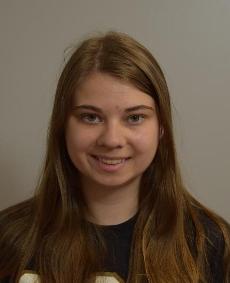
B.Sc. Ivana Dobiášová
Ivana stayed in the group for 2 years as a B.Sc. student focusing on the post-synthesis modification of zeolite catalysts and their synthesis-properties correlations. After defense of her B.Sc. project under the supervision of M. Shamzhy, Ivana continued her M.Sc. studies at the Faculty of Science, Charles university.
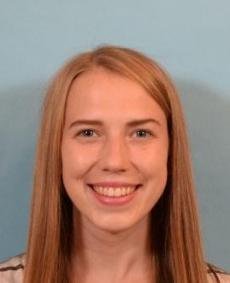
B.Sc. Sidónia Molitorisová
Sidonia stayed in the group for 2 years as B.Sc. student focusing on stabilization of metal nanoparticles in zeolites. The results of her research have been published as 2 articles in ACS Appl. Mater. Interfaces and Catal. Today After successful defense of her B.Sc. thesis under the supervision of M. Shamzhy, Sidonia moved to the University of Coimbra (Portugal) as ERASMUS M.Sc. student.
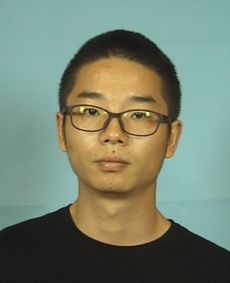
Qiudi Yue, Ph.D.
In his Ph.D. project (2017-2021), Qiudi used chemical lability of elementosilicates for designing new nanoporous materials (6 publications, including Chem. Eng. J. and Chem. Eur. J.). After obtaining his Ph.D. degree under the supervision of M. Opanasenko in 2021, Qiudi moved to Laboratoire Catalyse & Spectrochimie, CNRS (Caen, France) for postdoc. Since 2024, Dr. Q. Yue holds a position of Associate Professor in the School of Chemical Engineering and Technology, Xi’an Jiaotong University (China).
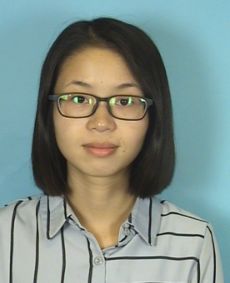
Yuyan Zhang, Ph.D.
Yuyan’s Ph.D. project (2017-2021) was focused on the design of zeolite-supported metal catalysts (10 publications, including Chem. Eng. J. and Mater. Tod. Nano). After obtaining her Ph.D. under the supervision of Prof. J. Čejka and M. Shamzhy in 2021, Dr. Zhang moved to the group of Multifunctional Catalytic Systems, Max-Planck-Institut für Chemische Energiekonversion (Mülheim an der Ruhr, Germany) as a post-doctoral researcher.
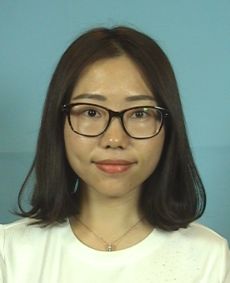
Jin Zhang, Ph.D.
Within her Ph.D. project (2017-2021), Jin developed synthetic method to control the chemistry and confinement of active sites in zeolite catalysts by post-synthesis of germanosilicates (6 publications, including Chem. Mater., ACS Sust. Chem. Eng.) After successful defense of her Ph.D. thesis under the supervision of M. Shamzhy, Jin moved to Laboratoire Catalyse & Spectrochimie, CNRS (Caen, France) for postdoc.
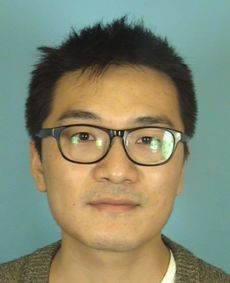
Yong Zhou, Ph.D.
In his Ph.D. project (2016-2020), Yong was utilizing chemical flexibility of zeolites to design catalytic materials with improved stability and tailored porosity (5 publications, including ACS Catal. and ACS Appl. Mater. Interfaces). After obtaining his Ph.D. degree under the supervision of M. Opanasenko in 2020, Dr. Y. Zhou moved to Sustainable Energy and Catalysis group, University of Lille, CNRS (Lille, France) as a post-doctoral researcher.
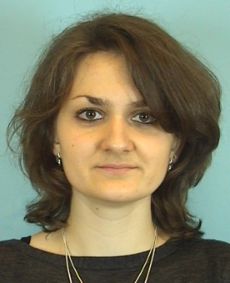
Valeryia Kasneryk, Ph.D.
Valeryia’s Ph.D. studies (2014-2018) expanded the ADOR method for the synthesis of new zeolites beyond UTL germanosilicate (8 publications, including Angew. Chem. Int. Ed., J. Mater. Chem. A and Nat. Com.). After obtaining her Ph.D. degree under the supervision of M. Opanasenko in 2018, Dr. V. Kasneryk moved to Helmholtz-Zentrum Hereon (Geesthacht, Germany) for Humboldt Research Fellowship. In 2025, Dr. Kasneryk joined Erlangen Center for Interface Research and Catalysis (Erlangen, Germany) as a postdoctoral research fellow focusing on carbon capture.
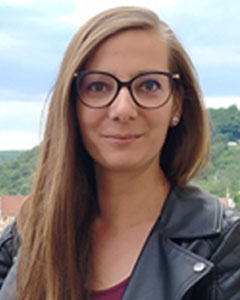
Kinga Maria Gołąbek, Ph.D.
Kinga stayed in the group in 2021-2023 as post-doctoral fellow focusing on in situ IR spectroscopic studies of zeolite catalysts. Her research shed a light on the mechanism of selective synthesis of nonsymmetric ethers over zeolite catalysts (Appl. Catal. A, Appl. Mater. Today). In 2023 Kinga has joined the Prof. Sievers Research Group in Georgia Tech (U.S.A.)
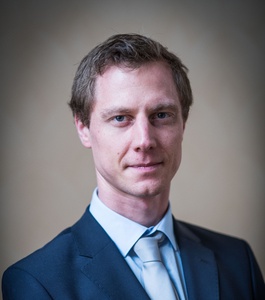
Daniel Rainer, Ph.D.
Daniel stayed in the group in 2022-2023 as post-doctoral fellow focusing on structural analysis of novel materials by electron microscopy and continuous rotation electron diffraction. His research contributed to understanding structural characteristics of several functional materials being important for charge storage, adsorption and catalysis (Appl. Mater. Today, Catal. Today, Nanoscale Adv., Adv. Funct. Mater.). In 2023, Daniel has joined University of Southampton (National Crystallography Service) as Specialist Technician for Electron Diffraction.
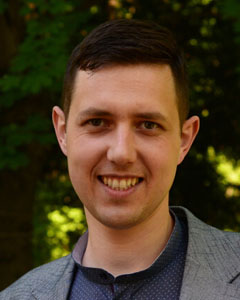
Roman Barakov, Ph.D.
Roman stayed in the group in 2020-2022 as post-doctoral fellow focusing on the green methods for design of zeolite catalysts with hierarchical porosity and their catalytic chemistry. The results of his research were published in Green Chem., Appl. Catal. A, Catal. Today.
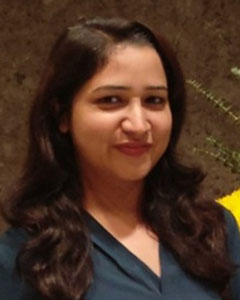
Poonam Rani, Ph.D.
Poonam stayed in the group in 2019-2021 as post-doctoral fellow. Her research involved the synthesis and catalytic applications of nanostructured zeolites, metal-organic framework and their composite materials. The results of her studies were published in Appl. Mater. Tod. and Microporous and Mesoporous Materials. In 2022, Poonam has joined the Department of Chemical Engineering (University of Virginia, Charlottesville). Since 2024, she has held a position as Assistant Professor at one of India’s most esteemed institutions, the Dr. B. R. Ambedkar National Institute of Technology.
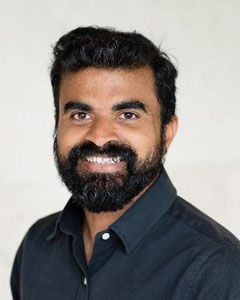
Shashikant Kadam, Ph.D.
Shashikant was a postdoctoral fellow in our group from 2017 to 2018. His research began with the construction of a setup for operando FT-IR spectroscopic studies of heterogeneous catalysts on site and led to publications in Catal. Today, J. Phys. Chem. C, and ACS Catal.
In 2018, Shashikant was invited to join the group of Prof. Iglesia at the University of California (Berkeley, USA), where he served as a postdoctoral scholar from 2018 to 2020. He continued his research from 2021 to 2023 as an Associate Scientist in the J. Heyrovský Institute of Physical Chemistry (Czechia), and subsequently accepted a position as Senior Research Chemist at British Petroleum (UK).
